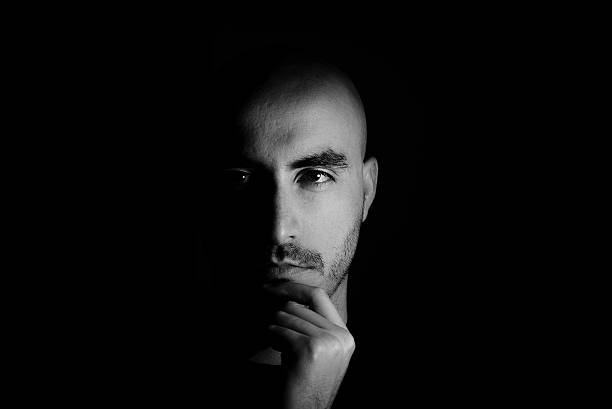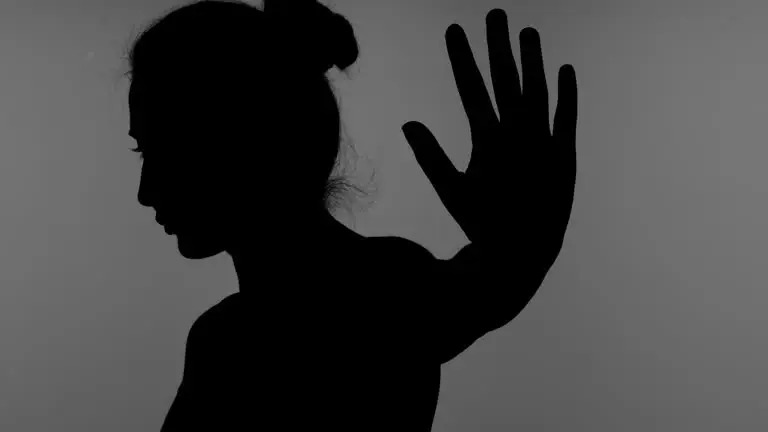In the shadowy corners of human personality, where traits like manipulation, arrogance, and emotional detachment often reside, science is uncovering a surprising truth: not all darkness is destructive.
According to a new study published in Personality and Individual Differences, individuals who score high on a personality trait called Machiavellian agency—a form of strategic, goal-oriented thinking commonly associated with the darker side of human behavior—may actually be better equipped to cope with depression. The findings offer a fresh, more nuanced perspective on the so-called dark triad traits: Machiavellianism, narcissism, and psychopathy.
Traditionally viewed as socially toxic, these traits are usually linked to manipulation, entitlement, and a lack of empathy. But this new research suggests that under certain conditions, some of these traits might function as unexpected sources of psychological resilience.
Rethinking the “Dark Triad”
The dark triad traits are often invoked in contexts of social harm: corporate schemers, manipulative partners, or heartless criminals. But researchers at Queen’s University of Belfast decided to look beyond the headlines and examine these traits in the broader population—people who may possess aspects of these characteristics to varying degrees, without falling into the realm of clinical diagnoses.
“Our lab has been studying personality traits that are often seen as ‘dark’ and finding that they are more complex than traditionally thought,” said Micheala McIlvenna, lead author of the study and PhD student in the InteRRaCt Lab at Queen’s University.
Her interest stemmed from a simple yet powerful question: Why do these traits persist in society, and what roles might they play in mental health and coping?
To find out, McIlvenna and her team recruited 343 adult participants and assessed them using a series of established psychological tools. These included inventories that broke down each of the dark triad traits into multiple components—for instance, distinguishing between Machiavellian agency (strategic, goal-oriented behavior) and Machiavellian antagonism (hostility and manipulation), or between narcissistic extraversion and antagonism. They also assessed levels of depression, anxiety, and stress, as well as coping flexibility—the ability to switch from one coping strategy to another when circumstances change.
The Power of Strategic Thinking
The study’s results challenge long-held assumptions. Among the traits considered “adaptive,” Machiavellian agency emerged as a surprising standout.
People who scored high in Machiavellian agency reported fewer symptoms of depression. They also demonstrated greater coping flexibility—particularly in their ability to drop unhelpful strategies and try new ones. Interestingly, this strategic mindset seemed to help buffer them against emotional distress.
“In many ways, Machiavellian agency operates like psychological armor,” McIlvenna explained. “It doesn’t remove the challenges of life, but it helps people navigate them more strategically.”
This strategic lens may allow individuals to assess problems more analytically, set clear goals, and distance themselves emotionally from setbacks—all qualities that can reduce the spiral into depressive thinking. Rather than being driven by impulsive emotions or social validation, high-Mach individuals might cope by calmly shifting gears and focusing on outcomes.
One of the most intriguing findings was how narcissistic extraversion—which includes traits like confidence and assertiveness—was linked to lower depression, but only indirectly. It exerted its influence through Machiavellian agency, suggesting that how extraversion is channeled matters.
The Shadow Side: Antagonism and Emotional Volatility
While some aspects of dark traits showed adaptive potential, others revealed their more damaging side.
In what the researchers termed the “maladaptive” network, traits like narcissistic antagonism and secondary psychopathy were closely associated with increased depression and stress. These dimensions involve emotional volatility, impulsivity, and a tendency to exploit or alienate others—traits long linked with poor mental health and unstable relationships.
“These are the traits that tend to burn bridges,” McIlvenna noted. “They’re conflict-prone and emotionally intense, which can make it harder to cope effectively when stress arises.”
Interestingly, coping flexibility did not play a strong mediating role in the maladaptive group. While people high in antagonistic traits still reported using different coping strategies, those strategies didn’t seem to reduce psychological symptoms in the same way. This suggests that while strategic thinking may be protective, emotional instability may undercut even the best coping tools.
A More Complex Picture of Personality and Mental Health
This study is part of a growing movement in psychology to move beyond black-and-white labels. Instead of classifying traits as simply “good” or “bad,” researchers are starting to ask when and how traits function in context.
“In everyday language, calling someone a ‘Machiavellian’ or ‘narcissist’ implies toxicity,” said McIlvenna. “But personality traits are multidimensional. Our research looks at how these traits play out in the general population—not just in extreme cases.”
She emphasized that most people carry some traits from the dark triad, even if only mildly. These traits might serve different functions depending on the situation. In times of stress or change, for example, being goal-driven or emotionally detached may offer real psychological benefits—even if those same traits create challenges in close relationships.
This nuanced view could explain why dark triad traits haven’t been weeded out by evolution. In the right doses and under the right conditions, they might confer survival advantages—allowing individuals to stay focused, remain emotionally unshaken, and navigate social conflict with cunning.
The Tools of the Study
To make sense of the complex web of traits and behaviors, the research team used network analysis, a cutting-edge statistical method that doesn’t assume one-way causality. Instead, it maps out all the variables as interconnected nodes, allowing researchers to see which traits influence others, directly or indirectly.
Two networks were constructed: one for adaptive traits and another for maladaptive traits. The strength and direction of connections between each trait and symptom painted a detailed picture of how personality shapes mental health.
In both networks, Machiavellian agency emerged as a central connector—linking personality with real-world outcomes like depression and stress. It wasn’t just a passive trait. It acted like a hub that shaped how other traits, like narcissism or coping styles, ultimately affected mental health.
Implications and What Comes Next
The findings offer a thought-provoking lens for mental health professionals, researchers, and even the general public. They suggest that not all “bad” traits are necessarily harmful—and that strategic, emotionally detached thinking may be an overlooked form of resilience.
However, McIlvenna cautions against oversimplification.
“This isn’t about glorifying Machiavellianism,” she said. “Traits like manipulation and coldness still have real social consequences. But we also shouldn’t ignore that some traits we’ve long dismissed might have hidden benefits in the right context.”
The study has limitations, of course. It relies on self-reporting, which can be prone to bias, especially when it comes to socially undesirable traits. And because it’s cross-sectional, it can’t determine causality—only association. Future studies will need to track people over time, perhaps even across periods of acute stress, to see how personality and coping interact in real-time.
Still, the study opens new doors. If psychologists can better understand the adaptive components of personality traits, it might be possible to help people harness their strengths while mitigating the drawbacks.
As for McIlvenna and her team, the journey continues. “We’re working on refining how we measure personality,” she said. “We want to capture the full picture—without reducing people to labels.”
Darkness, Reframed
In a culture quick to vilify traits like narcissism or manipulation, this study provides a compelling reminder: human personality is messy, complicated, and deeply context-dependent.
Sometimes, the very qualities that push people to the edges of society might also give them the tools to endure its harshest moments.
And in the quiet spaces where psychology meets survival, darkness—when examined with compassion and nuance—can sometimes offer its own kind of light.






